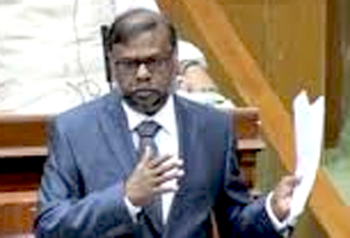Bengaluru, Apr 18: Social Welfare Minister H Anjaneya on Friday said disciplinary action would be taken against enumerators who were found to have made wrong entries in the questionnaire of the ongoing caste census in the State.
 Addressing reporters here, he said the government had been receiving a large number of complaints from people on the lapses on the part of the enumerators. Not asking all 55 questions, collecting incomplete information, not taking the signature and writing in pencil are some of the common complaints, he said.
Addressing reporters here, he said the government had been receiving a large number of complaints from people on the lapses on the part of the enumerators. Not asking all 55 questions, collecting incomplete information, not taking the signature and writing in pencil are some of the common complaints, he said.
Interestingly, an enumerator collecting information from Chief Minister Siddaramaiah on Thursday, too, made wrong entries on certain details. Moreover, the chief minister himself failed to provide complete information. “It (making wrong entries of the chief minister) should not have happened. Directions have been issued to all officials on the census duty to take utmost care while collecting information,” he said. The enumerators have collected all pending information from the chief minister on Friday, he added.
The minister, however, said there were only initial hiccups and the census had been going on smoothly now. “Enumerators were a bit confused. Now, they have better clarity and are collecting information properly. So far, 8,04,769 families have been covered under the census in the State,” he said.
Principal Secretary to the Backward Classes Welfare department, Shalini Rajneesh, said multiple levels of verification would be done before finalising the data collected under the census.
Directions have been issued to all the district deputy commissioners to make use of the ration card, Bhoomi and voter list database to verify the census details, she said.





Comments
Add new comment